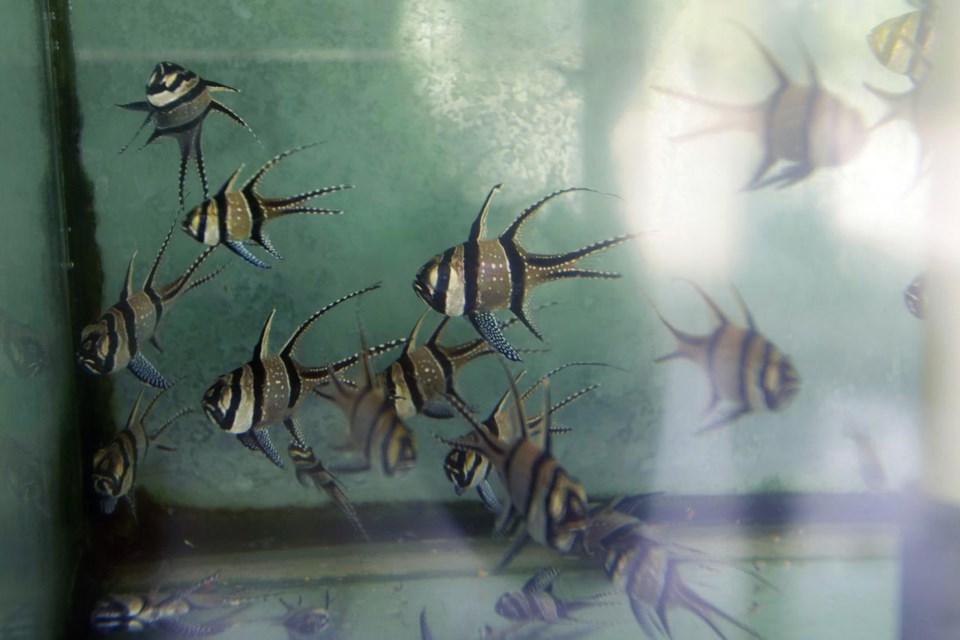The federal government is looking to ban importation and exportation of a species of a tropical fish that conservation groups have long said is exploited by the pet trade.
The fish is the Banggai cardinalfish, a small striped saltwater fish native to Indonesia. The National Oceanic and Atmospheric Administration listed the species as threatened under the Endangered Species Act in 2016, saying that the main threats to the fish included harvest for ornamental aquariums.
The agency proposed on Tuesday to apply prohibitions under the Endangered Species Act that would make it unlawful to import or export the species in the United States. The proposal followed a 2021 petition from conservation groups that said the fish needs the ban to have a chance at survival.
The U.S. imports an average of 120,000 of the fish every year, members of the groups said Wednesday. The species have declined in number by as much as 90% since the 1990s because of exploitation in the aquarium trade, they said.
“Today’s proposal is the first step in eliminating the United States as a destination for Banggai cardinalfish and sending a clear signal to Indonesia that it must do more to conserve the species and its habitat," D.J. Schubert, a wildlife biologist at the Animal Welfare Institute.
The Banggai cardinalfish is among numerous species caught with the intention of adorning home aquariums and reef tanks in places such as offices and restaurants. The little fish is native only to the Banggai Archipelago in Indonesia.
Critics of the tropical fish trade at large have described it as notoriously difficult to track and regulate, and call it a major contributor to the decline of some jeopardized species. Many of the fish don't survive from capture to exportation.
NOAA officials said in its proposal to ban the Banggai cardinalfish trade that the agency's goal is “to prevent further reduction of existing wild populations of” the fish species. The agency also said the species suffers from lack of protections and regulations in international trade.
NOAA said it will solicit public comments on its proposal and might hold a public hearing before a final ruling is made.
Patrick Whittle, The Associated Press



